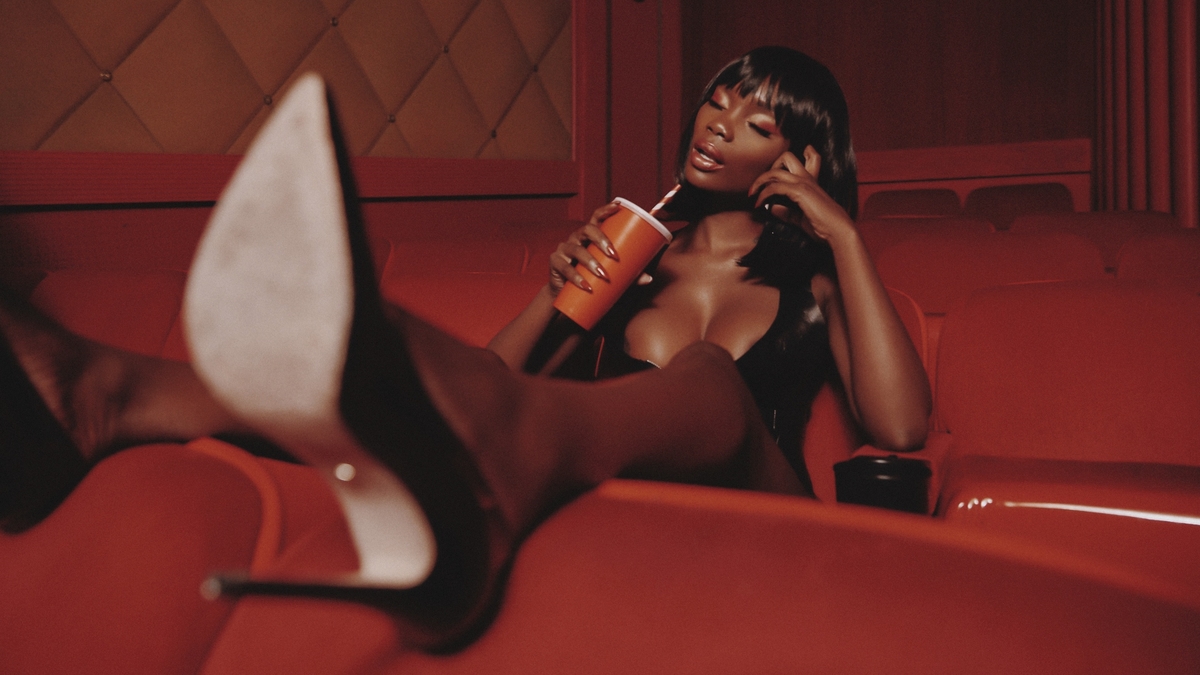Model Chasity Samone is dedicated to making the world a better place, especially for Black women. Her commitment to the women she represents is what inspires her to continue making strides in the modeling industry. Recently, Playboy took notice and featured Samone in its inaugural "Equality Issue." The publication also named her February Playmate for 2020.
Along with centering Samone’s alluring photo spread, the “Equality Issue” also revealed interesting details about the model. For example, she’s an army veteran who wants to run for city council in her Dallas, Texas, hometown, making it clear that the 27-year-old activist has plans that extend beyond the modeling realm. Samone talked to Blavity about those plans and her modeling journey:
Blavity: How did you pursue modeling after your time in the army?
Chasity Samone: I always had an interest in modeling, but because my dad was a veteran, I wanted to follow in his footsteps of being in the army, which was a journey that started in high school. Being in the army, I knew that I didn't want to pursue it as much as I thought I could. I didn't re-enlist. By God's grace, modeling just fell into my lap when someone posted one of my pictures on Facebook, which led to my first photo shoot. After that, I just fell in love with it and have been doing it for seven years.
Blavity: How do you balance modeling with your activism and what made you want to incorporate activism with your modeling?
Samone: Me being a dark-skinned model, or just a dark-skinned woman in general, and not seeing myself represented and not seeing myself in spaces that I know I could be in made me feel like I can do something about it in the modeling world. I didn't want to take "no" for an answer because I wanted Black girls and Black women to know that they can be themselves and understand that there's more shades of beauty than what the media tries to portray, so I just had to take it upon myself to do that in spaces, like modeling, where we don't really see ourselves
Blavity: Are there any particular instances in which you faced discrimination because you're a dark-skinned model?
Samone: I really face it all the time. There are makeup artists who don't care to have my foundation color. There were times when I've literally had to get out of my seat while I was getting my makeup done to find a Black makeup artist, if there was one. Black beauty brands have reached out to me, and I have worked with so many of them. Using brands like Fenty Beauty whose goal is to have a wide range of shades that are inclusive of Black women has been helpful. For my Playboy shoot, I wanted to make sure I had a Black makeup artist just because I didn't want to go to someone who wouldn't know what products to use on my skin. That's scary. I had similar issues with hairstylists before I cut my hair off, but it's still a daily struggle for me.
Blavity: You've been vocal about women's equal pay and children having access to quality education. What inspired you to bring more awareness for those issues?
Samone: A lot of things that women and children have to go through today is very disappointing to me. Why are we allowing this to happen? When thinking about that, I just want to make changes and be on the right side of history.
Education is very important to me because I think everyone should receive a quality education. And advocating for women to be paid the same as their male counterparts for doing similar jobs is a no-brainer for me. I grew up in Dallas, and the education system there is really not for low-income Black communities.I grew up in the hood, so I saw the differences between my school system and those in wealthier neighborhoods. I feel like those things are just really taking away from how children see themselves.
Blavity: In what other ways has your hometown informed your work as a model and activist?
Samone: My hometown is my heart. All of my family members are there, and I have 10 brothers and sisters, so my motivation is definitely to represent my family and community with the work that I do. I'm also going to run for city council in Dallas just so I can try to meet the needs of the people there and just [be] a voice for them. I just want things to be better.
Blavity: How are you preparing for that career shift?
Samone: Right now, I'm just studying the issues of the city. Because I'm in Dallas, I'm meeting city council and community members to figure out what could be done and how I can help.
Blavity: What was the most memorable part of your shoot for Playboy's "Equality Issue"?
Samone: It's when I walked in and saw that they rented out a movie theater just for the shoot. It really made me feel like it was my day, and I felt like a queen. I just felt special that entire day because I didn't know they were going to do that for me.
Blavity: What motivates you to continue the work that you're doing?
Samone: Black women. I want to inspire them. So basically, representation for me is why I keep going. I want them to see a Black woman who's using her voice for the greater good of the people. I want Black girls to see everything that I'm doing and know that they can do it as well, and I hope that future Black female models get more opportunities.
.
